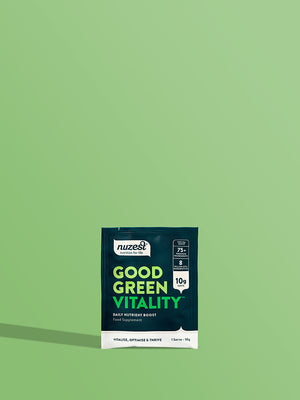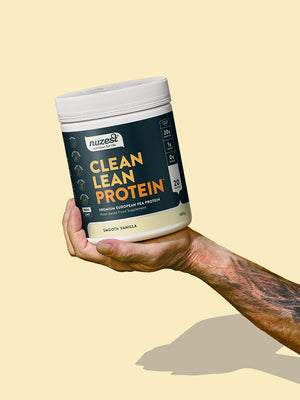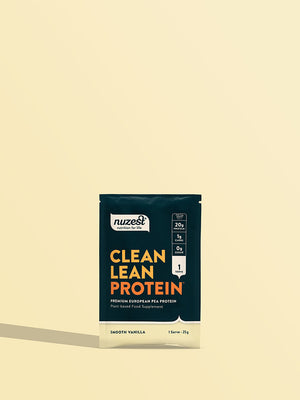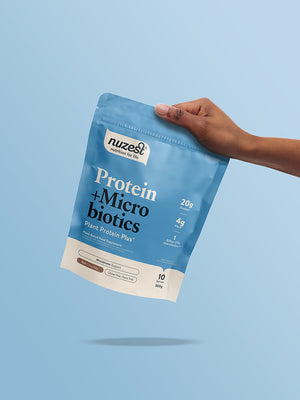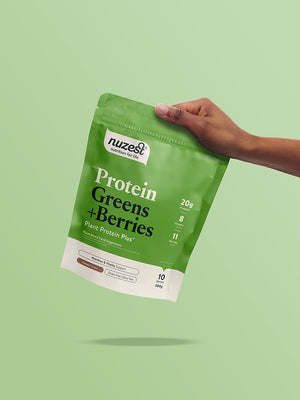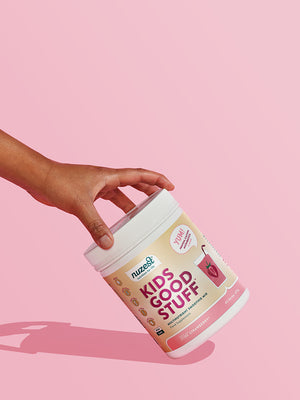
7 min read
How to Recover After Exercise
Posted By
Olivia Ensor
For many, a lot of thought goes into what they consume before exercise, but what about after? Exercise puts the body under stress which can deplete energy stores and nutrients but can also serve as stimulus for adaptations. Optimising your recovery nutrition is fundamental for not only health, but performance too. Especially if you’re regularly exercising and wanting to maintain training consistency.
Consuming the right nutrients soon after you exercise can help your body replenish and adapt faster and more efficiently. Failure to do so may increase your levels of fatigue, your muscles may become excessively sore, no performance gains will be made and there may also be a risk of developing illness.
Refuel. Rebuild. Rehydrate. The three R’s are the cornerstone of recovery nutrition.
Refuel
Energy is essentially the foundation of recovery nutrition.
During moderate to high intensity exercise your body uses glycogen as its primary fuel, and so glycogen stores are depleted, and energy is therefore lost. To restore your energy, you need to consume carbohydrates - you need to refuel.
Consuming 1-1.5 g/kg bodyweight of carbohydrate rich foods/drinks within the first hour after exercise has been shown to maximise glycogen resynthesis and therefore recovery. Turn to foods with a high glycaemic index such as a banana bread, muffins or even these raspberry cinnamon rolls
You should continue to ingest carbohydrates throughout the day. Be guided by your hunger. It is recommended that you consume carbohydrates relative to your level of activity. For example, on rest days your intake may be lower than it is on heavy training days.
A general guideline is:
- Low intensity/skill-based: 3–5 g/kg BW
- Moderate intensity: 5–7 g/kg BW
- High intensity: 6–10 g/kg BW
- Extreme: 8–12 g/kg BW
Rebuild
Exercise triggers the breakdown of muscle. The rate at which it breaks down depends on the activity and athletic ability, but equally, protein intake is an essential component of recovery nutrition.
Consuming an adequate amount of protein after exercise provides the body with the amino acids necessary to rebuild muscle and build new tissue.
Consuming 20-40 grams of high-quality, lean protein after a workout will maximise results. It’s important that you choose a complete protein with all 9 essential amino acids to ensure the body has all the building blocks to enhance muscle protein synthesis, and so combat muscle breakdown. A supplement like Clean Lean Protein is perfect for boosting protein intake – it comes complete with all essential amino acids, particularly leucine which is crucial for muscle protein synthesis.
Consuming protein and carbohydrates together can help accelerate the uptake of carbohydrates and therefore replenish glycogen stores. Research has shown that it could positively affect performance, particularly if there is a short time period between exercise bouts.
The body is best at muscle repair and growth in the first hour after exercise so ingesting protein almost straight away is beneficial. However, repair will continue over the next 12-24 hours so you should look to ingest 20g of protein every 3-4 hours.
Rehydrate
Rehydrating after exercise can help regulate body temperature and transport energy and nutrients throughout the body efficiently. When we exercise, we lose sweat. The harder we work, the more water we lose, and so the more we need to replace with fluids to avoid dehydration. Dehydration can impair performance and recovery and can sometimes lead to serious consequences.
Weigh yourself before and after training. For optimal rehydration, aim to replace each 1 kg of your weight (sweat) loss with 1.2-1.5 L of fluids. If fluid losses have been high, you should look to restore lost electrolytes. This is to prevent imbalances that could be damaging to our body’s muscle and organ function. Sodium, calcium, and potassium are the main electrolytes lost through sweat and can be replenished through sports drinks, as well as whole foods such as bananas, potatoes, spinach and milk.
Aside from the three R’s, you must not forget your micronutrients.
Support your cells, tissues, and immune and nervous system function with a high antioxidant/anti-inflammatory intake, inclusive of vitamins and minerals. Good Green Vitality is enriched with 75+ ingredients 75 high-quality vitamins, minerals and other essential nutrients. Find out how to take Good Green Vitality here.
While the body is responsive to nutrients in the 1-2 hours after exercise, continuing to deliver the right nutrients for the next 24-48 hr fully enhances training adaptation and prepares for upcoming training sessions.
References
Beelen, M., Burke, L. M., Gibala, M. J., & Van Loon, L. J. (2010). Nutritional strategies to promote postexercise recovery. International journal of sport nutrition and exercise metabolism, 20(6), 515-532.
Moore, D. R. (2015). Nutrition to support recovery from endurance exercise: optimal carbohydrate and protein replacement. Current sports medicine reports, 14(4), 294-300.
Betts, J. A., Williams, C., Boobis, L., & Tsintzas, K. (2008). Increased carbohydrate oxidation after ingesting carbohydrate with added protein. Medicine and science in sports and exercise, 40(5), 903-912.
Alghannam, A. F., Gonzalez, J. T., & Betts, J. A. (2018). Restoration of muscle glycogen and functional capacity: role of post-exercise carbohydrate and protein co-ingestion. Nutrients, 10(2), 253.
Convertino, Victor & Armstrong, Lawrence & Coyle, Edward & Mack, Gary & Sawka, Michael & Senay, Leo & Sherman, W.. (1996). ACSM Position Stand: Exercise and Fluid Replacement. Medicine & Science in Sports & Exercise. 28. i-ix. 10.1097/00005768-199610000-00045.
Related wellness

